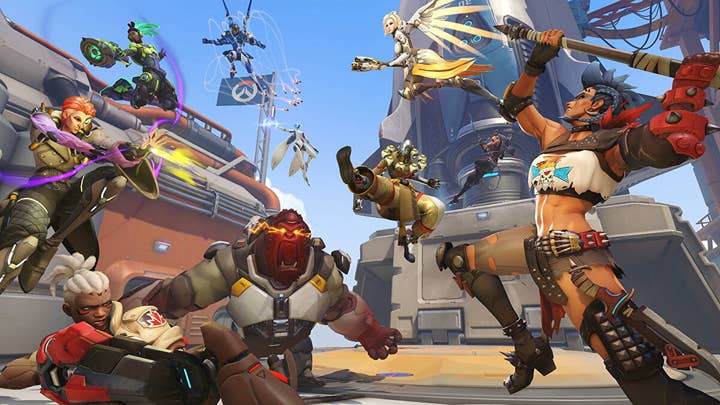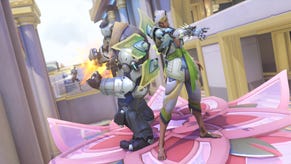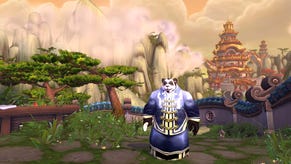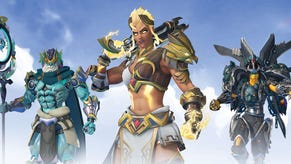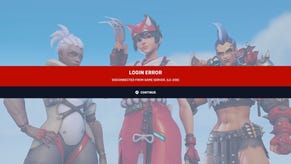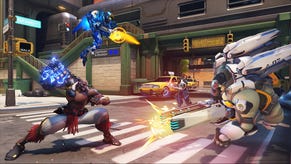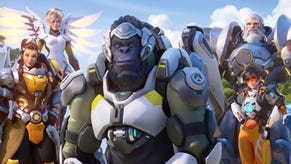Overwatch 2 is less a sequel, more a business model relaunch | Opinion
Blizzard’s retooled online shooter is one of the biggest remaining launches of the year – and a very unusual attempt to overhaul the monetisation of a popular game in mid-flow
At the end of this month, Blizzard will shut down sales of loot boxes for Overwatch – a stepping stone towards the launch of Overwatch 2, and consequent overhaul of the whole business model for the Overwatch franchise, in early October.
This isn’t an unprecedented move; the original Overwatch will be fully replaced by its sequel, rather than running alongside it, and it’s fairly common for developers to phase out various monetisation aspects of their live service games some time before the game itself shuts down.
The reasoning for that is clear: selling virtual items for a game that won’t exist in a few months is just asking for a consumer backlash and some serious side-eye from consumer watchdogs and regulators. In the case of Overwatch, though, loot box items will actually continue to be usable in Overwatch 2, so this logic doesn’t really apply.
Why, then, is Blizzard shutting down its monetisation of loot boxes more than a month early? Well, while it’s true that the items from those boxes will continue to be usable past the launch of Overwatch 2, the new game won’t have a paid-for loot box system, with such random boxes of items only being earned through gameplay, so you could certainly make an argument that players who pay for items that become available through regular play only days later might feel a bit ripped off.
Shutting down the loot box monetisation well ahead of the launch is a good piece of marketing that sends a clear message to the existing playerbase
More importantly, though, shutting down the loot box monetisation well ahead of the launch of the sequel is a very good piece of marketing that sends a clear message to the existing playerbase of Overwatch, many of whom have been vocally critical of the loot boxes from the outset.
That message – making clear that Overwatch 2 is going to do away with the broadly disliked loot crate business model – is just one part of a broader messaging campaign that Blizzard is having to carefully construct around the new game.
Overwatch 2 is one of the biggest games remaining in the pipeline for 2022, partially because it’s a follow-up to a very successful game, and partially because it’s launching in a pretty barren time for new releases (with Marvel licensed title Midnight Suns being the latest game to slip, possibly closer to year-end but most likely into 2023).
Combined with being a free download, the game is very well positioned to attract a lot of attention and many new players eager to try it out – but that doesn’t fully mitigate the messaging challenge of launching this highly unusual sequel.
The whole raison d’être of Overwatch 2 is very different from that of most sequels. Perhaps once the game’s PvE content launches – currently scheduled for quite a while after the October launch of its core PvP modes – it’ll start to feel more like a conventional game sequel. For now, though, the reality is that Overwatch 2 is not so much a sequel, as a relaunch of the Overwatch service which is designed to fix a number of strategic errors that Blizzard feels it made with the original game.
This is a tricky thing to do. Overwatch is transitioning between business models while the game remains in live service, something that has traditionally only happened when things are going really, really badly. The first Overwatch was a monolithic, pay-up-front game; the sequel will be free to download, and is being widely described as an free-to-play game (though I’m not sure that moniker fully applies).
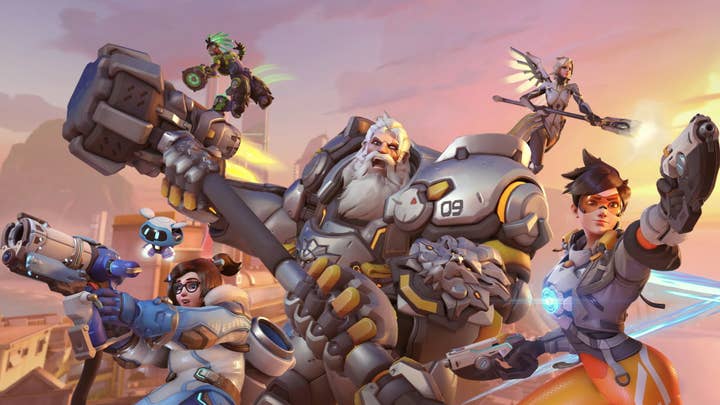
A paid game switching to F2P is an event that’s more commonly seen in situations like an MMORPG falling flat on its face some time after launch and attempting to reinvent itself with an F2P monetisation model. It’s rarely been a signal to consumers that the game involved is any good.
Consequently, Blizzard has had to work out some way of keeping existing players happy (often tough in these situations, as players who paid for the game tend to be rather miffed at a bunch of johnny-come-lately types joining in when the game goes F2P), attracting new consumers, and reassuring everyone that the new business model is an attempt to bring a successful game up to date rather than an attempt to rescue a foundering game.
Blizzard at least has the truth on its side here – Overwatch genuinely isn’t foundering, and has racked up pretty great sales and engagement numbers since its launch. The problem is that since that launch, games like Fortnite have turned up and rewritten the rulebook in a variety of ways, most notably with regard to the business model that players expect. Just as these games themselves have a "meta" which changes over time – reflecting which weapon types and strategies are dominant in gameplay – so too is there a "meta" for business models and monetisation strategies.
The reality is that Overwatch 2 is not so much a sequel, as a relaunch of the Overwatch service which is designed to fix a number of strategic errors that Blizzard feels it made with the original game
Fortnite, in particular, has turned season passes into the dominant meta for this kind of game – rendering Overwatch’s up-front cost and loot box monetisation outdated and inefficient.
There are simply too many advantages to Fortnite’s model for Blizzard to ignore it; it makes cross-platform play a breeze (Overwatch would require players to repurchase the game on every platform they want to play it on), it lowers barriers to entry overall, and it avoids the "worst of all worlds" trap that Overwatch and many other games of its era fell into, wherein they charged players up front and then also tried to use a loot box model after the fact.
Overwatch 2 could essentially have been a major update to the existing game, or a new "season" – and it does seem fairly likely that content overhauls of this scale will be delivered as new seasons in future, rather than in the form of an Overwatch 3 or Overwatch 4 – but turning the new version of the game into a sequel instead helps to communicate and explain that total about-face in terms of business model to players, and avoids those players who paid for the original game feeling ripped off when the client goes free, with that deal being further sweetened by giving them free access to the upcoming PvE content.
Blizzard has had to reassure everyone that the new business model is an attempt to bring a successful game up to date rather than an attempt to rescue a foundering game
Another way to sweeten the deal and communicate the benefits of the new business model for players is to drop the controversial paid loot box system in advance of the launch of the sequel, thus making it clear that Overwatch 2 will not feature this system in a much more clear and direct way than any press release could have achieved.
What Blizzard will end up with after the launch of its sequel-cum-update, then, is essentially an overhauled Overwatch that’s in line with the existing season pass "meta" for online and live-service shooters.
This meta itself is actually a somewhat curious beast; we’ve become so accustomed to the notion of season passes for games at this point that we sometimes lose sight, I think, of the fact that the concept encompasses two very different business models. The first, and the original use of the term, I believe, is the "season pass" as a discounted pre-purchase plan for future DLC for a mostly single-player game. The second, owing its lineage to Fortnite’s "battle pass" but now broadly implemented across a lot of live service games (think Destiny 2, Halo Infinite, and so on), is a time-limited access token to a number of gameplay modes, item rewards, and challenges within the game, often tied to a patch that brings with it a variety of new content to the game world.
It's all dolled up and ready for the ball, but this is really a subscription model in all but name. Giving seasons names and unique rewards is a very clever twist on the age-old model, but at the root of this lies something companies have been doing for a couple of decades – charging players for game time, either through a monthly subscription or a game time card. Games which use these seasons passes generally pair them with some additional monetisation through direct sales of cosmetic items (Overwatch 2 will replace sales of loot boxes with this direct, non-random sales system), but in practice they still place a hard limit on how much a player can spend – both a pretty low limit on how much they can spend on "practical" (i.e. non-cosmetic) items, and a higher but still resolutely finite limit on how much they can spend on cosmetic items in a given season.
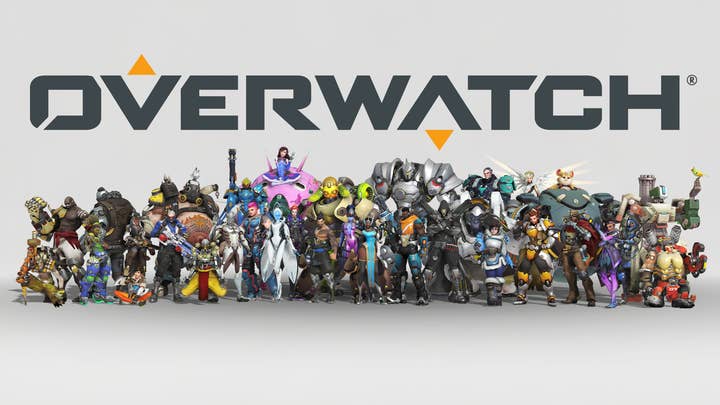
From the perspective of games that are designed to appeal not only to adults but also to large audiences of teenagers and children, this is a very good thing – and I’d argue that it’s very much stretching the definition of "F2P" past the point of usefulness, instead reflecting the industry pulling back somewhat from its former embrace of the notion of making a lot of money from a limited group of "whales" or high-rollers.
There’s a long discussion to be had over why, exactly, that’s happening – talk to one executive and they’ll mutter darkly about concerns over regulation and legislation from countries not so easily ignored as early-movers Belgium and the Netherlands, but talk to another and they’ll simply shrug expansively and tell you that a lot of players hate those monetisation models and they’re seeing diminishing returns from them as attitudes harden among consumers.
We’re past the frenzy of enthusiasm about F2P models, and more rational decisions are being made about what games need and benefit from that sort of monetisation
This is not, however, to say that F2P models, or indeed loot boxes, are actually gone – even Blizzard, while carefully signalling its abandonment of paid loot boxes in Overwatch, has just launched a largely loot box based game in the form of Diablo Immortal. Rather, we’ve reached a point where we’re past the frenzy of enthusiasm about F2P models, and more rational decisions are being made about what games need and benefit from that sort of monetisation – and which games, conversely, can be seriously damaged by it.
The "meta", however, will continue to evolve. Season passes are what players currently expect, but there remains a lot of room for innovation in terms of monetisation of live service games.
The season pass model isn’t perfect, after all, it arguably pushes out a lot of casual players who don’t feel confident about engaging enough to get their money’s worth within the time allotted, which risks creating barriers to acquiring new players and getting them to swim upstream and become more engaged.
In the years to come, people will come up with smart new ways to monetise games that bypass those issues, and the "meta" will evolve. Perhaps then we’ll see operators of major live service titles scrambling one more to retool their business models. If so, the hybrid sequel and relaunch of Overwatch is likely to be studied carefully as a business case – though it’ll be some months before we know for certain whether it’ll be a textbook example or a cautionary tale.
